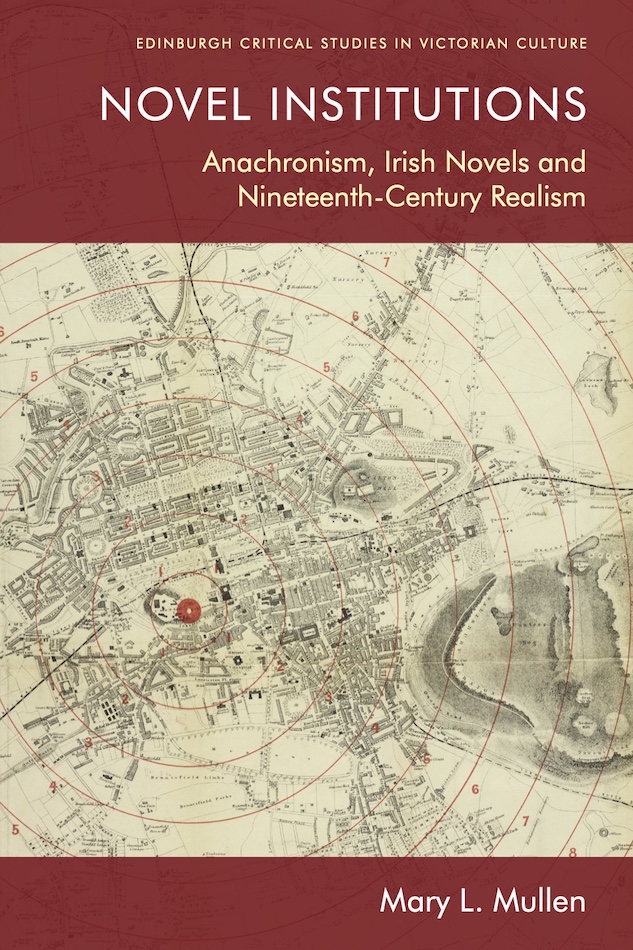Collations: Book Forum on Mary L. Mullen’s Novel Institutions: Anachronism, Irish Novels and Nineteenth-Century Realism
 The V21 Collations: Book Forum welcomes Matthew Reznicek, Dani Green, and John Plotz in conversation about Mary L. Mullen’s compelling new scholarly work: Novel Institutions: Anachronism, Irish Novels and Nineteenth-Century Realism (Edinburgh, 2019). As Mullen states with characteristic precision and clarity in the Introduction, “Novel Institutions offers a new understanding of the politics of institutions through an attention to temporality, arguing that institutions acquire political authority by organising time…allow[ing] multiple historical temporalities within the present to be brought onto a shared and singular path” (2). Working with recent theoretical interventions by Amanda Anderson, Bruce Robbins and Lauren Goodlad, Mullen offers a way of conceiving of such temporal organization as something more than merely oppressive or deterministic, as more traditional Foucauldian criticism might suggest. Mullen does so by focusing on “anachronisms” of many kinds, as they are represented and figured in Victorian writing, particularly realism, a form that points “us to ways of inhabiting institutions while rejecting institutional time” (4).
The V21 Collations: Book Forum welcomes Matthew Reznicek, Dani Green, and John Plotz in conversation about Mary L. Mullen’s compelling new scholarly work: Novel Institutions: Anachronism, Irish Novels and Nineteenth-Century Realism (Edinburgh, 2019). As Mullen states with characteristic precision and clarity in the Introduction, “Novel Institutions offers a new understanding of the politics of institutions through an attention to temporality, arguing that institutions acquire political authority by organising time…allow[ing] multiple historical temporalities within the present to be brought onto a shared and singular path” (2). Working with recent theoretical interventions by Amanda Anderson, Bruce Robbins and Lauren Goodlad, Mullen offers a way of conceiving of such temporal organization as something more than merely oppressive or deterministic, as more traditional Foucauldian criticism might suggest. Mullen does so by focusing on “anachronisms” of many kinds, as they are represented and figured in Victorian writing, particularly realism, a form that points “us to ways of inhabiting institutions while rejecting institutional time” (4).
Novel Institutions seeks an alternative to “nation-based literary histories” (16) while also drawing on more recent theoretical concepts and paradigms, including postcolonial and queer theory, demonstrating the persistent relevance of these rejections of institutional time. Distinguishing between what Mullen calls “necessary” and “unnecessary anachronisms,” Novel Institutions reveals the pressures to conform to institutional structures and demonstrates that those structures are also not deterministic. Institutions can change, be reimagined, and shift to accommodate new and more inclusive arrangements. As Mullen says, the “narrative anachronies create anachronisms that foster relationships across time even as they highlight historical change” (10)—and in that provocative historical ahistoricism, we find great cause for hope.
| Reflection by Matthew Reznicek | Reflection by Dani Green | Reflection by John Plotz |
Maeve Adams, Convener and Co-Editor
Justin Raden, Co-Editor
There are no comments yet.